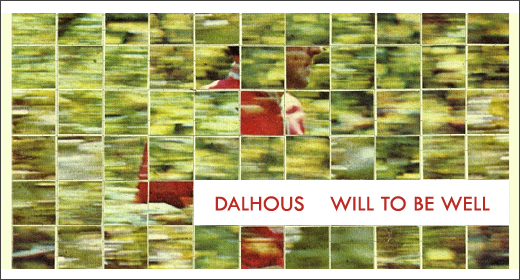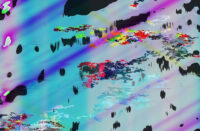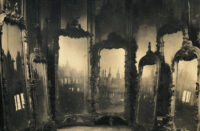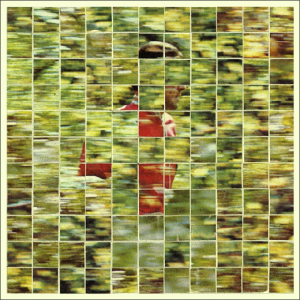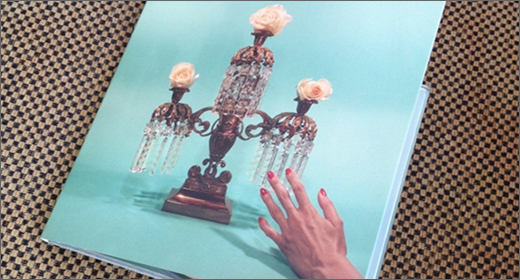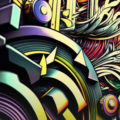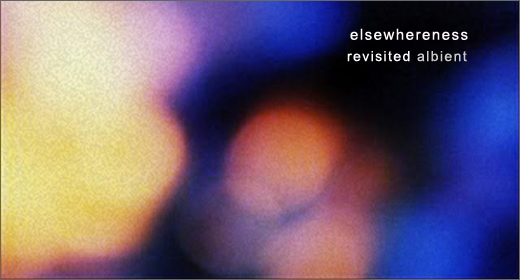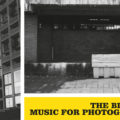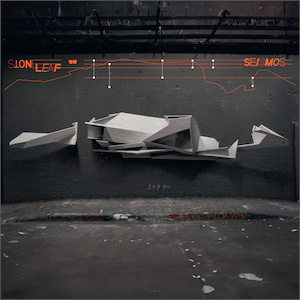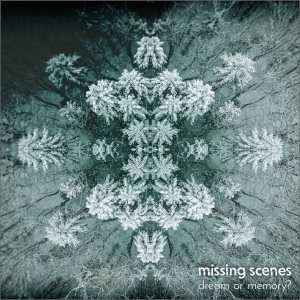Will To Be Well’s combination of stirring lyricism and smudged harmonics tilts the dark v. light face-off of the debut light-wards, yet a river runs through it that twists and turns with edgy jouissance. A salutary reminder too of halcyon days of synth and sample-based auteurs who were more than mere producers, but screenplay writers too.
‘There are those moments when you’re looking out of a window or staring at something, and a feeling comes across you, but before you can really get a sense of what it is, it’s gone, a moment where everything seems to make sense and your mind is clear and open. That’s what I try to capture.’ (Marc Dall, RA).
Having captured a fertile corner of our imagination on one of igloo’s best of 2013, An Ambassador For Laing, Marc Dall and studio sidekick Alex Ander’s new waxing, Will To Be Well, sees a retool of the downbeat synth+samples template of an already compelling Blackest Ever Black debut toward greater eloquence. Seen as if through a glass, albeit less darkly, their sound pool full of strange eddies and currents, edges eroded, blurry, ineffable, tone and texture harnessed to convey elusive emotions, Dalhous’s oblique production strategies—of sampling and resampling, arranging and re-arranging—stretch sources beyond recognition, tracks rendered miniatures of new tracks, and then, Russian Doll-like, subsumed within yet newer, dense out-of-focus parts sculpted into focused wholes.
‘I’m not into clearly illustrating things, I’m trying to be suggestive with certain imagery and sounds, to bring about a feeling relating to a particular place and time.’ (Marc Dall) ‘I like it when I don’t really know what I’m listening to anymore. I don’t want to hear sounds I know. […] I’m interested in trying to manipulate any instrument I use into something completely different.’
What to make of it all is partly a matter of construction—a construct derived from Dalhous’s dallied with ideologies and rallied round totems. Chief among these is ’60s anti-psychiatry radical, R.D. Laing, who believed one’s pathology is to be embraced, not fought, that ‘madness’ is not illness, but an essential discharge of the organism’s energy. A sign of musical mien/means can be read (here) in intimations of a litany of 70s/80s soundtrack artists—Vangelis, Fabio Frizzi and Goblin—and synth explorers—Tangerine Dream, Klaus Schulze, Brian Eno and Jean Michel Jarre. These allegiances seem to effect a mysterious transfer of freight—of body-mind, illness-wellbeing, and physical-metaphysical paradigms; 50 years of pop-psych wellness discourse bringing with it conjectures and refutations in between science and mysticism, experiment and ritual, knowledge and intuition. All this makes for a rich semiotic ferment expressive of technological advance and pastoral remanence, of futurism and folklore.
“Transference” and “Her Mind Was A Blank” teem with sampladelic swirl and pliant circuitry; “To Be Universal You Must Be Specific” and “Entertain The Idea” stay within woozy, languid confines familiar from the recent Visibility Is A Trap EP. More up-tempo, “Sensitised To This Area,” “Four Daughters By Four Women,” and “Thoughts Out Of Season” may be awash with folds and rhizomes of broken beats and IDM skitter, but somehow within even these more upward of dynamics what beats at the heart is shrouded.
Both the elegiac minor key recursions of “A Communion With These People” and the spooked drones and widescreen themes of “Lovers Of The Highlands” bespeak a provenance from the contours of the land of these Edinburgh-dwellers’ kin—contemplative but fluff-free, those Caledonian bros-in-arms, Boards of Canada, come to mind; a facile reference perhaps, but nonetheless felt at micro- (nifty rhythm-shimmies and melodic squiggles fashioned from static flicker and electronic flutter) and macro-level (a union in textural tampering and reverence for old apparatus). Ander and Dall’s early dalliances with film and sound can also be heard in WTBW—signifiers of classic OSTs: sketch-like interludes, drifting mood pieces, unheimlich maneuvres playing about the fringes.
‘I don’t know why but I like things that are a bit older… I don’t want things to sound like they are brand new, because to me it sounds a bit sterile.’
Ultimately, Will To Be Well’s combination of stirring lyricism and smudged harmonics tilts the dark v. light face-off of the debut light-wards. Yet, less eerie though it may be, a river runs through it that twists and turns with edgy jouissance. A salutary reminder too of halcyon days of synth and sample-based auteurs who were more than mere producers, but screenplay writers too.
‘…the type of electronic music that I have consistently been interested in tends to be from the ’70s and ’80s.[…] The upfront and unashamedly simple melodies have a musicality to them which favours the power of a tune rather than anything overtly complex, in a way that a lot of modern electronic music tries to be everything but.’ (Marc Dall, RA).
Will To Be Well is available on Blackest Ever Black [ LP | digital ]






